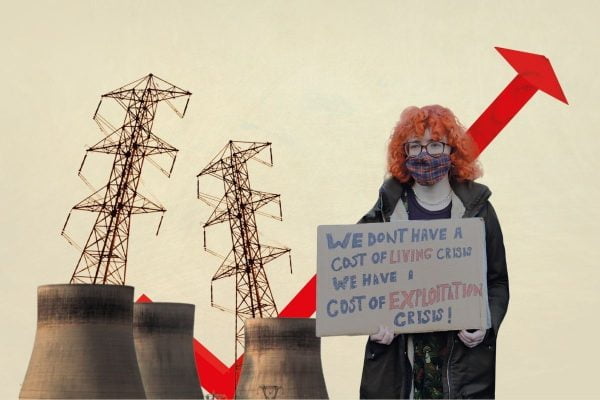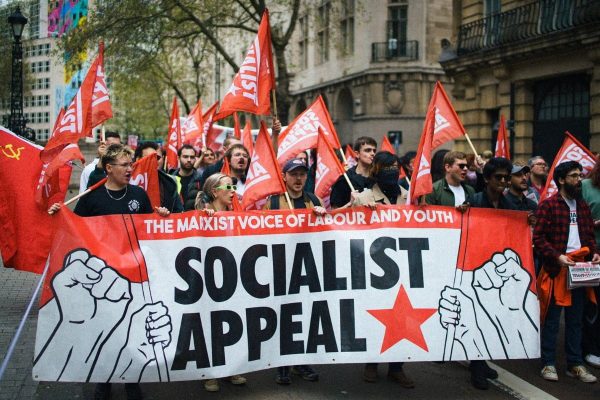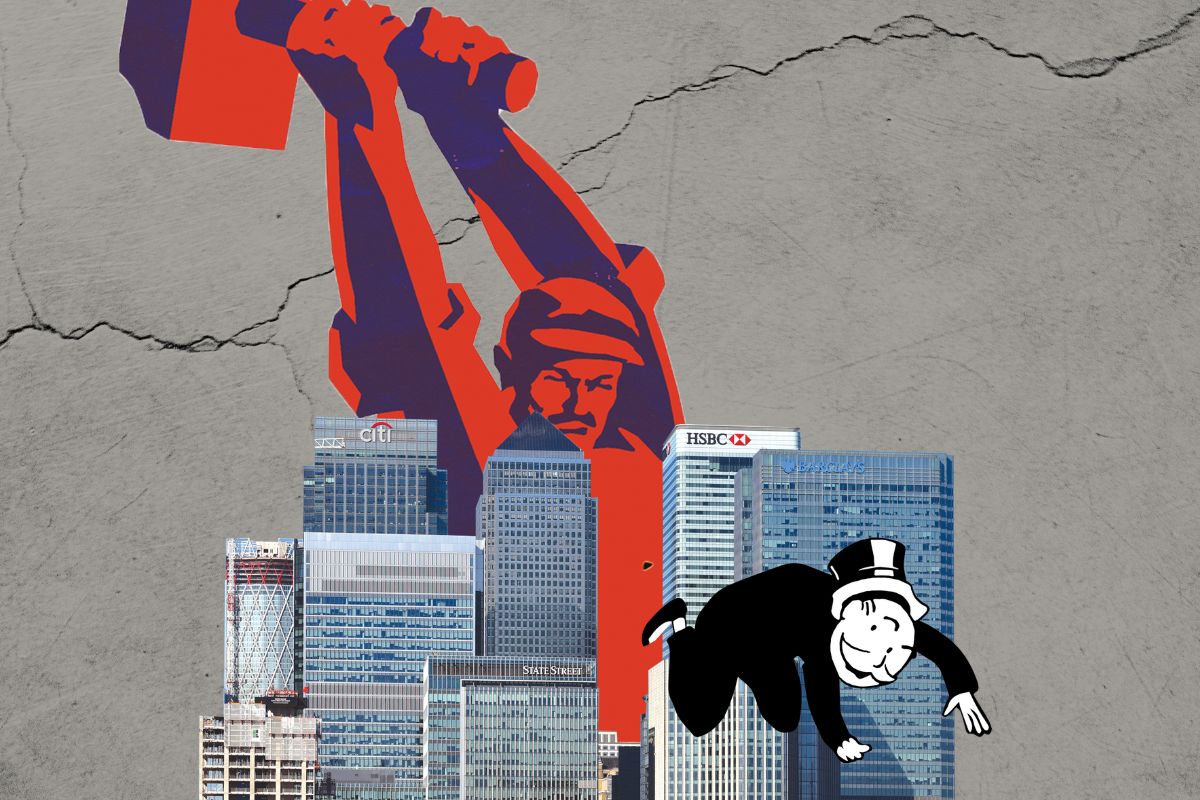British workers and companies “need to accept that they’re worse off” as a result of inflation, according to Huw Pill, the Bank of England’s (BoE) chief economist.
“Somehow, in the UK,” Pill lectured recently, “someone needs to accept that they’re worse off, and stop trying to maintain their real spending power by bidding up prices [or] wages”.
Presumably this means that Pill, a former Goldman Sachs banker, won’t be demanding a raise on his £180k salary this year!
Wage-price spiral
Pill was commenting on what he sees as the inflationary danger of a ‘wage-price spiral’. In other words, he has the audacity to blame inflation on workers demanding wage increases, which we are told pushes companies to increase their prices.

In reality, it is the other way around. Workers are forced to fight for double-digit pay rises in order to play catch-up with the rapidly rising costs of living.
Rising prices over the past period have far outstripped nominal pay increases. As a result, real wages fell by 3.2% in the year to February 2023.
But this average figure hides the dire situation facing millions. The poorest households have suffered far greater hits to their living standards.
Raising rates
Pill must know full well that his appeals to businesses to stop raising prices will fall on deaf ears. It is the logic of the market, not moralistic sermons from economists, which dictates the bosses’ policies: to maximise their profits at all costs.
The BoE is therefore taking no chances in assuming that anyone will ‘somehow’ heed Pill’s commands. Since December 2021, the bank has resorted to the far more compelling measure of hiking interest rates, in order to try and bring inflation under control.
But so far, the Bank’s medicine has failed to achieve its intended result. Official data puts annualised inflation in March at 10.1%, well above previous forecasts. And the BoE’s latest predictions suggest inflation is likely to be persistent, with its target of 2% unlikely to be reached until 2025.
The BoE is therefore responding in the only way it knows how – by continuing to up its dose. Consequently, today, the Bank Monetary Policy Committee’s agreed to raise its base rate by another 0.25 percentage points, to 4.5%. This brings the cost of borrowing to its highest level since 2008.
By doing so, the BoE hopes that it can bring down prices by reducing the overall demand in the economy – that is, by inflicting economic misery on millions.
Thousands of companies will be forced into bankruptcy, as they can no longer service their debts. Millions of homeowners will see their mortgage costs increase by hundreds of pounds a month. And many more renters will be hit, as landlords pass on their rising costs.
But nevermind all this. According to Pill and his banker chums, we all just have to tighten our belts and accept that we’re worse off!
Anarchy of the market
Far from being the fault of workers, inflation is a product of the anarchy of the capitalist system.
Since the 2008 crash, and again during the pandemic, governments worldwide pumped trillions of pounds into the system, to keep it from collapsing. With no corresponding increase in production, this has resulted in demand outstripping supply in many areas of the economy.
Supplies of many key commodities have been hit, meanwhile, including food and energy, due to supply chain issues, increasing protectionism, climate change, and the impacts of the war in Ukraine.
The result is a perfect storm of rapidly rising prices worldwide. But of the ‘advanced’ capitalist countries, Britain has fared amongst the worst, reflecting the special crisis of British capitalism.
Resurgence of struggle
Hopes that inflation would come down by the end of this year are rapidly being dashed.
Indeed, despite falling energy costs worldwide, the energy price cap in Britain will remain unchanged for the foreseeable future. And with food price inflation running at 19% – the highest level for 45 years – millions of workers will continue to feel the pinch.
 It is this dramatic fall in living standards that is behind the resurgence of the class struggle in Britain. The number of working days lost to strike action has surged over the past year, for example, to levels not seen since in decades.
It is this dramatic fall in living standards that is behind the resurgence of the class struggle in Britain. The number of working days lost to strike action has surged over the past year, for example, to levels not seen since in decades.
Although some conservative union leaderships have accepted paltry pay deals in recent months, the increasing cost of living will only intensify the rank-and-file pressure for further action in the period ahead. And no amount of moralising from City bankers can hold this back.
The consciousness of millions of workers will be transformed through these struggles. In the process, a new left will emerge. But so long as capitalism is left intact, workers will be forced to pay for the system’s crises through inflation and austerity.
It is therefore an urgent task to build the Marxist leadership that is necessary for workers to take power into their own hands, and do away with capitalism once and for all.






